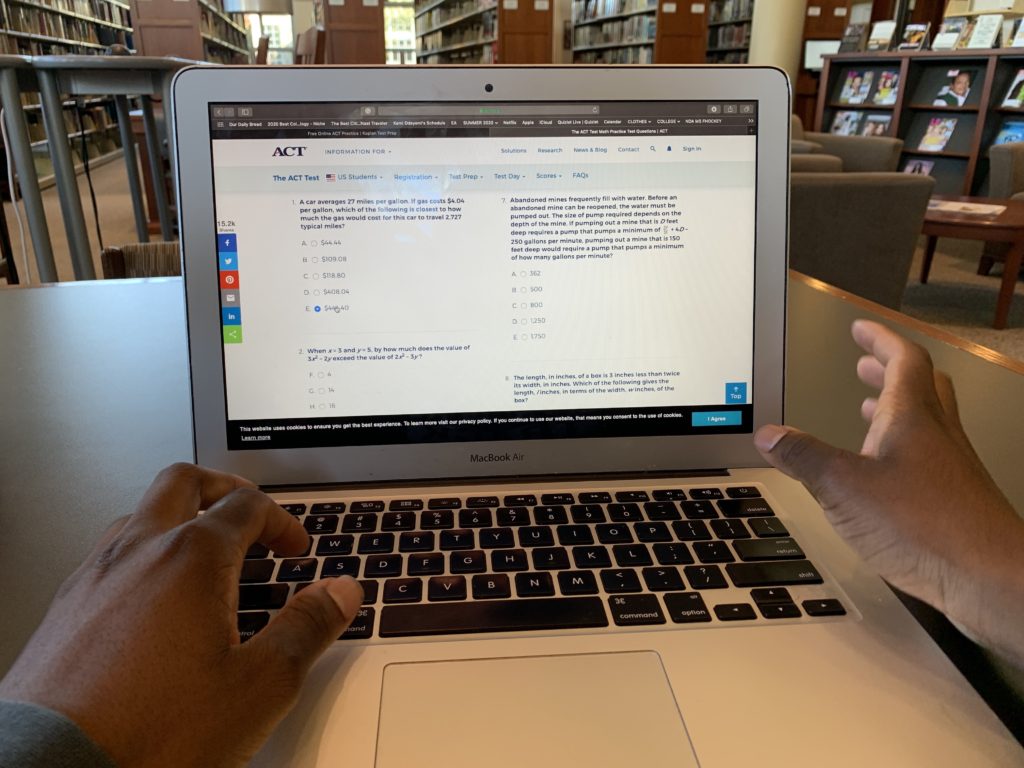Cameron Buonocore ‘20

Photo courtesy of Trish Tsundupalli
Beginning in September 2020, students will be able to retake an individual section of the ACT. ACT chief commercial officer Suzanne Delanghe claims this abrupt change is just another way to offer students the ability to improve their scores. Other stakeholders in the college admission process question whether this change will actually have this effect.
“This is a business decision that ACT made as they look to capture market share, and I don’t think anybody, any student, should get excited about this at all because ACT made this decision without having any conversations with colleges,” Cynthia Crum, Episcopal college counselor says about the new policy, “Until colleges tell us they’re willing to consider these scores, how they’re going to use them, are they going to use them, are they going to accept them? This just sounds lovely but I’m not sure how helpful it may or may not be for students.”
This new regulation, where students can choose which section they solely want to take again, significantly contrasts with the old policy. Before, test-takers could only improve their scores by sitting for the entire exam again. As a result, this change in testing has elicited many mixed emotions.
Ashley Hewitt ‘20 who took the ACT this past year, believes this change in testing could have a very positive effect on students. She states that, “I think it would be very beneficial and alleviate the college process stress many high schoolers feel.” Fellow sixth-former Tom Hogan ’20 is a bit more skeptical about the ACT’s new policy. Hogan, who has also previously taken the ACT in order to prepare for college admission season says, “I would definitely take a section of the ACT again if I was given the opportunity. However, I believe that retaking single sections would defeat the purpose of the test as a whole.”
Students might not be affected that much: the ACT still needs to handle extensive logistical details in order to implement the decision. Lara Grieco, college counselor for Episcopal, explains,“There are still a lot of unanswered questions when it comes to this change. The ACT, to our understanding, did not implement this change in consultation with colleges and universities.” She continues, “There are some colleges and universities that don’t even accept the superscored ACT, so it remains unclear how they’re going to be handling these modifications. Even some of the logistics raise concerns: there has been no communication with test sites as to how the new section resittings will be administered because they’re on laptops. All the logistics about this change have yet to be addressed. It was rolled out pretty quickly and pretty suddenly and so we have a lot of questions on our side.”
It is also advised for any juniors to not get their hopes up. Like College Board’s new adversity score last year, this sudden policy change may be rolled back. “I think when policies are implemented really quickly without addressing all of the stakeholders, the students and the colleges and universities, they often adapt to those needs over time,” Grieco says. “Also, even if universities do accept superscores, it will be very interesting to see if they are going to change how they evaluate a superscored ACT.”
At the moment there are “lots of unknowns.” For upperclassmen considering this, Grieco advises: “Juniors should sit for the full exam because research often suggests that students will see a section improve that they just didn’t anticipate. For our seniors, just proceed forward, as per usual.”